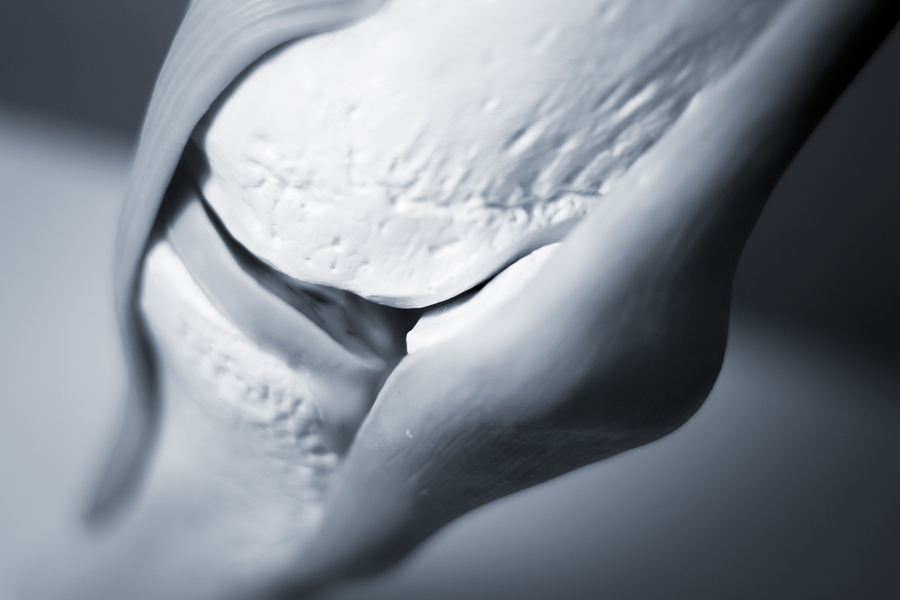Have you ever heard people talk about torn knee cartilage? What they really mean is a torn meniscus. Anyone who’s ever had a meniscus tear knows how this condition can cause excruciating pain and affect productivity. Actually, this type of knee injury is quite common. Here’s what you need to know about the meniscus, along with what’s involved in a meniscus tear and how physical therapy (PT) is a viable treatment option.
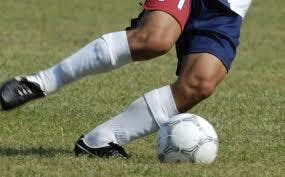
Basic Knee Anatomy and Functions of the Mensicus
The meniscus consists of two pads or rubber cushions of fibro-cartilaginous tissue that form a “c” or crescent shape. To better understand what’s involved in the meniscus, picture how your knee joint is formed by three bones that come together. These bones include the femur (thighbone), the tibia (shinbone) and the patella (kneecap). Each knee joint contains two menisci.
Your meniscus serves two important functions. Besides filling the space between the bones of your knee and stabilizing the knee, the meniscus is also a shock absorber between the tibia and the femur. Think about how your knees are subjected to significant stress just by doing your daily activities.
In fact, the stress placed on your knee when taking a single step is about 2 to 3 times that of your body weight. When you run or exercise, the force is even more. But when your meniscus is working properly, the force involved in each step is distributed evenly so that your knee is stabilized when it’s extended, flexed or makes circular movements.
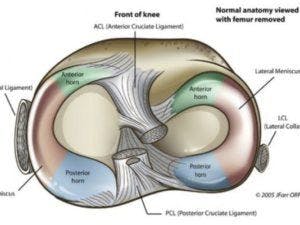
People Most at Risk
In most cases, a meniscus tear is a result of turning or twisting quickly. These injuries normally happen from lifting heavy objects or playing contact sports, such as football, as well as non-contact sports that involve a lot of jumping.
Age is another factor as older people are more at risk. This is because the meniscus becomes weaker as you age. Males are more likely to be injured than females. Other high-risk groups include people serving in the Army or Marine Corps.
Common Diagnostic Tests for Meniscus Tear
- Physical examination—This involves a doctor examining your knee and checking for tenderness at the area of the meniscus, which can indicate a tear.
- The McMurray test—This test entails your doctor bending your knee and then straightening and rotating it to see if there’s a clicking noise, which reveals a meniscus tear.
- MRI (magnetic resonance imaging) scans may be ordered, especially when there’s swelling. MRIs are able to reveal a better view of the soft tissue in your knee joint and can show where the tear is located, besides its severity.
- X-rays—Even though you can’t see meniscus tears from X-rays, they can still show the reasons for knee pain, such as osteoarthritis.
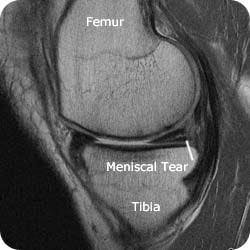
Nonsurgical Treatment Options
Nonsurgical treatments can be effective for treating small tears. These treatments, known as the RICE protocol, include rest, icing the affected area, compression and elevating your leg above the level of your heart. Taking NSAIDS (non-steroidal anti-inflammatory drugs) can also help in pain relief.
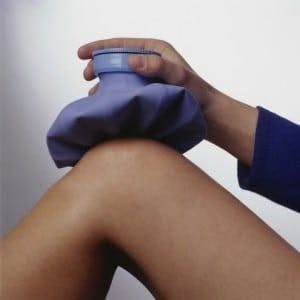
Arthroscopic Surgery
When nonsurgical treatments don’t work, arthroscopic surgery may be needed. This procedure involves a tiny camera that’s inserted through a portal or small incision, enabling a surgeon to clearly view the interior of the knee. Next, miniature surgical instruments are inserted through tiny incisions for repairing or trimming the tear.
Physical Therapy
Physical therapy is one of the best ways to treat a meniscus tear. Physical therapists use a treatment known as NMES (neuromuscular electrical stimulation) for improving knee strength. They also prescribe specific exercises that can help in restoring total movement to an affected knee. Furthermore, patients are shown exercises they can do at home for their conditions.
Studies Showing That Physical Therapy Is Just as Effective as Surgery
Several studies have been done showing physical therapy to be just as effective as surgery for treating meniscus tears. For example, a study done at Brigham and Women’s Hospital in Boston involved half of the patients, ages 45 and older, receiving only physical therapy, while the other half underwent surgery.
After a six-month period, both of the groups showed significant improvement in pain levels and functionality. Only 30 percent of the 351 participants who received only physical therapy chose to have surgery following six months of starting the study. This was because their symptoms had not improved. However, those remaining in the physical therapy group continued to improve throughout the next six months and showed just as much improvement as the patients who did have surgery.
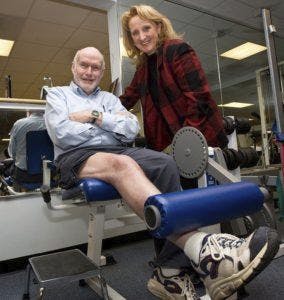
Considerations and Warnings
- The meniscus used to be considered as just a muscle remnant, rather than an essential part of the knee, so surgeons removed the meniscus. This resulted in a loss of shock absorption in the knee.
- The first arthroscopy for meniscus repair was done in 1969.
- Younger people with meniscus tears, under age 30, are more likely to get meniscus tears because of engaging in sports activities.
- When treatment begins early, such as within three weeks of being injured, the injuries are usually repaired.
- It’s important to recognize the common symptoms that can suggest a torn meniscus. Besides pain, these include swelling, stiffness, a locked knee, not having a full range of motion in your knee and feeling as if your knee is collapsing.
- If you’re overweight, it can help to lose weight to reduce your odds of getting a torn meniscus.
If you struggle with orthopedic pain, visit the physical therapy specialists at Hess Physical Therapy where we treat all types of orthopedic related conditions. Contact our team at Hess Physical Therapy via phone at any of our 5 offices or refer to our website www.hesspt.com for further contact info.
Our locations:
- Kennedy: (412)-771-1055
- Crafton: (412)-458-3445
- Allison Park: (412)-487-2787
- Bethel Park: (412) 835-2626
- Atlasburg: (724) 947-9999
Website: www.hesspt.com
Disclaimer: this information is "not medical advice" and is used at the site visitor's own risk.
